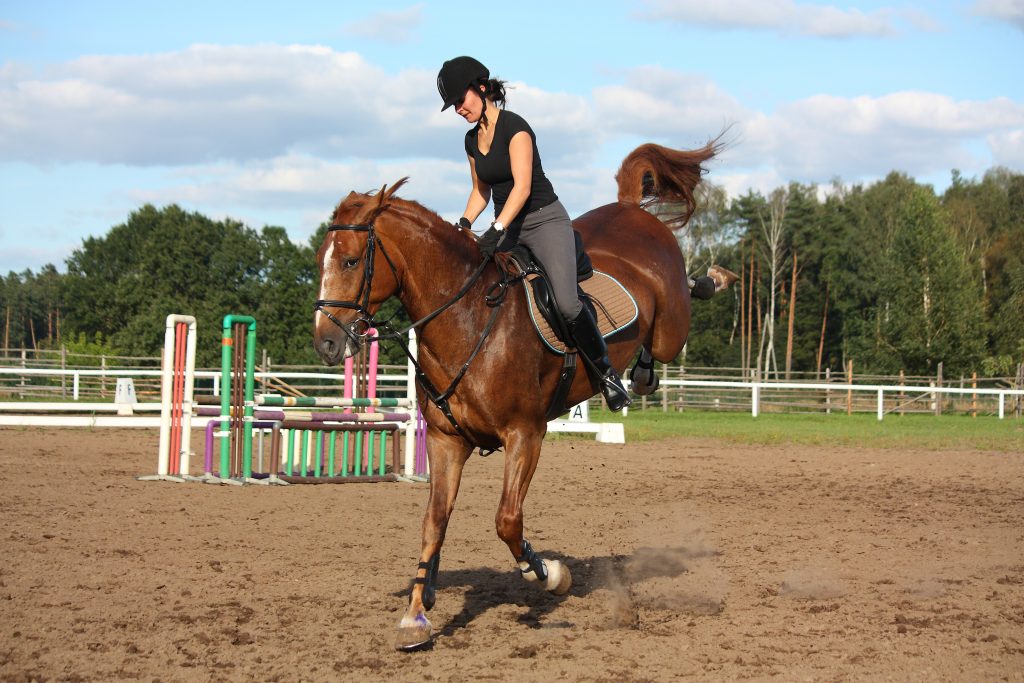Advice and Information
Equine Vaccinations
By Dr Callum Macleod-Andrew, BSc BVSc MRCVS of Stride Equine Vets
A Comprehensive Guide to Equine Vaccinations
Vaccinations are a cornerstone of equine health, offering protection against serious, sometimes fatal, infectious diseases. By following a regular vaccination schedule, horse owners can safeguard their animals against common ailments prevalent in the UK, such as equine influenza and tetanus. This guide provides a detailed overview of the essential vaccinations and their schedules, as well as insights into other conditions that may require vaccination under specific circumstances.
Core Vaccinations: Equine Influenza and Tetanus
Why Vaccinate?
Equine influenza and tetanus are among the most critical diseases to guard against. Both can lead to severe health complications or even death if left unchecked. Horses can be vaccinated as early as six months old (four months in exceptional cases, with veterinary guidance). The primary vaccination course includes three injections, followed by annual boosters.
For competitive horses, vaccination compliance is mandatory under governing body regulations. Whilst we endeavour to send vaccination reminders, it is the owner’s responsibility to ensure their horse’s vaccinations are up to date.
Equine Influenza
Equine influenza is a highly contagious viral infection that spreads through direct contact with infected horses or indirectly via contaminated environments or air. The incubation period is brief—just 1-3 days—allowing the disease to spread swiftly. If untreated, equine influenza can escalate into life-threatening bronchitis or pneumonia. Additionally, horses recovering from the virus are vulnerable to secondary infections due to their weakened state.
Vaccination Schedule
The standard protocol for equine influenza involves:
- Primary Course: Two injections given 4 weeks apart.
- First Booster: Administered 5 months after the second primary injection.
- Annual Boosters: Given within 12 months of the previous vaccination.
For horses also vaccinated against tetanus, influenza vaccines are typically administered annually, while tetanus vaccines are required every other year.
Note for Competitors: Some regulatory bodies permit slight variations in the vaccination schedule, allowing the second primary dose between 21-92 days and the third between 150-215 days. However, adhering to these extended timelines could create immunity gaps, increasing the horse’s susceptibility to infection. Therefore, we recommend sticking to the manufacturer’s datasheet ranges to ensure optimal protection.
Vaccine Type
We use combination vaccines, which contain the latest viral strains and comply with current OIE (World Organisation for Animal Health) recommendations.
Competition Guidelines
Horses competing in equestrian events must have valid vaccination certificates signed and stamped by a veterinary surgeon. Vaccinations should not be administered within seven days of a competition or before entering competition stables. Schedules can regularly change so please speak with your Stride vet about the current up to date requirements.
Tetanus
Tetanus is caused by the bacterium Clostridium tetani, which is found in soil. This bacterium enters the body through wounds, even minor ones. Symptoms typically appear 7-21 days after infection, often long after the wound has healed. Approximately 90% of unvaccinated horses with tetanus do not survive, and those that do recover require intensive veterinary care for at least six weeks.
Vaccination Protocol
Tetanus vaccines are highly effective and strongly recommended. They are often administered in combination with influenza vaccines, following the same schedule for ease of management. For some horses, standalone tetanus vaccines may be more suitable. Tetanus vaccinations can be given as early as six months of age.


Equine Herpes Virus (EHV)
Equine herpes virus (EHV) is a prevalent condition, with the strains EHV-1 and EHV-4 being the most significant. EHV-1 is commonly associated with neurological diseases and abortions, while EHV-4 primarily affects the respiratory system.
EHV and Abortion
Mares infected with EHV may experience abortions during late gestation, typically from seven months up to the expected birth date. These abortions can occur weeks or months after infection, often without prior signs of illness. In some cases, foals born to infected mares may appear healthy initially but develop severe lethargy and weakness within the first week.
To minimise risks, pregnant mares should be kept in small, stable groups and separated from new arrivals.
EHV and Respiratory Disease
EHV-induced respiratory infections are most common in weaned foals and yearlings, particularly during autumn and winter. Secondary bacterial infections may follow, compounding the horse’s health challenges.
Carrier State
Recovered horses may become latent carriers of the virus, harbouring it in their bodies without showing symptoms. Stress can reactivate the virus, leading to re-infection and transmission.
Vaccination Schedule
- Primary Course: Two injections, given 4-6 weeks apart.
- Booster: Every 6 months following the primary course.
- Pregnant Mares: Vaccinate during months five, seven, and nine of pregnancy. Boosters are also required every six months.
- Foals: In high risk foals, such as those who have not received sufficient colostrum from the mare, they may be given a single primary course from 3 months of age.
Vaccination reduces the severity and duration of the disease but does not entirely prevent infection or transmission. It is also inadvisable to vaccinate during an active EHV outbreak, as this may exacerbate clinical symptoms.
Additional Notes on Vaccination
- Compliance: Always ensure vaccinations align with governing body regulations, especially for competition horses.
- Veterinary Guidance: Your Stride vet can give personalised advice on vaccination schedules, particularly for broodmares or foals with specific needs.
- Booster Timeliness: Adhering to recommended booster timelines is critical to maintaining effective immunity.
Conclusion
Vaccinations are a vital aspect of equine health, protecting horses from debilitating and life-threatening diseases. By adhering to recommended vaccination protocols for equine influenza, tetanus, and EHV, horse owners can ensure the well-being of their animals while fulfilling regulatory requirements for competition or breeding. Regular consultations with your vet will help tailor a vaccination plan that meets the specific needs of each horse, providing peace of mind and robust disease protection.

Call to ask any question
01420 551 365
Equine Services
Your Trusted Equine Partner
Expert veterinary care for horses in Surrey, Hampshire and the surrounding areas.

